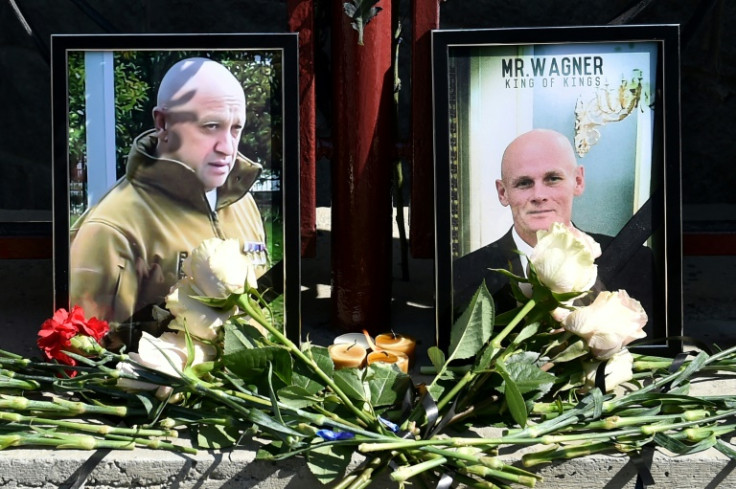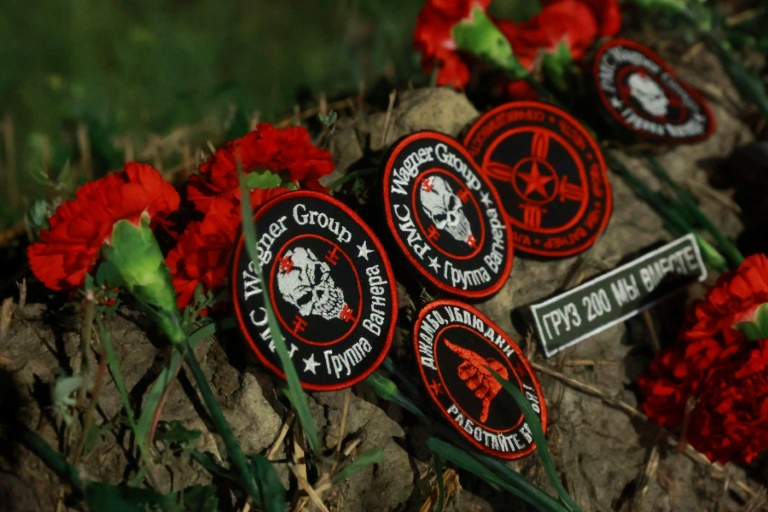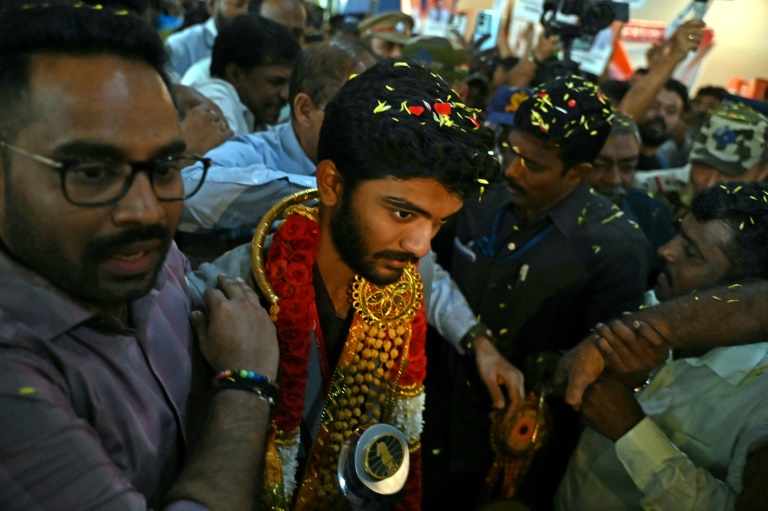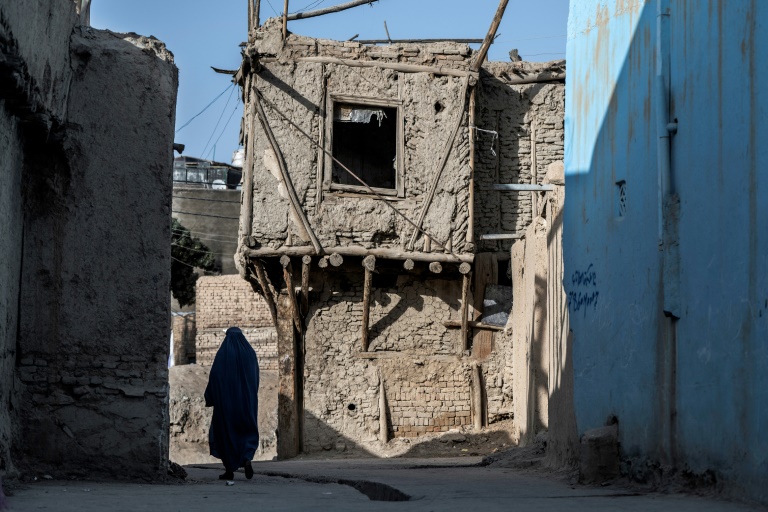AFP
Russian supporters of Yevgeny Prigozhin gathered outside the Wagner headquarters in Saint Petersburg on Thursday to pay their respects to the mercenary group’s boss, presumed dead after a mysterious plane crash.
Prigozhin was branded a “traitor” by President Vladimir Putin after his short-lived rebellion against the conventional Russian army on June 23-24.
But he remained popular among Russians, who acclaimed the battlefield achievements of the Wagner paramilitary group — despite many accusations of abuses and war crimes.
“You could say it’s like losing your father. He was everything to us, because everyone was always waiting (for) what Uncle Zhenia (Prigozhin) was going to say,” said Igor.
Like Igor, who was wearing a hat with the Wagner logo and the national flag on it, many Russians eagerly awaited Prigozhin’s outspoken videos and audio messages on social media.
The clips, full of expletives, were a sharp contrast to the tightly controlled narrative of Russian officials.
His verve and unbridled criticism of Russia’s regular army had turned him into a cult figure for parts of Russian society — and antagonised Moscow’s top brass.
Tensions degenerated into a violent but short-lived mutiny attempt at the end of June.
The mutiny ended with a deal, mediated by Belarusian leader Alexander Lukashenko, under which Prigozhin was expected to move to neighbouring Belarus with some of his fighters.
There was no mention of Prigozhin’s rebellion — or the ensuing public repudiation by Putin — from the mourners laying red carnations in front of Wagner’s glass-fronted multistorey headquarters, which opened last autumn with great fanfare.
They also avoided speculating on the reasons behind the crash of the plane, on which Wagner’s operational chief Dmitry Utkin was also flying.
A probe has been launched into the cause of the crash but investigators gave no update on Thursday.
Mourners however expressed a familial affection for the warlord, who spent years in prison in Soviet times before making a fortune through his catering business and later building Russia’s most powerful private army.
Pavel Zakharov compared Prigozhin to Charles de Gaulle, France’s former president and head of the resistance against the Nazis.
“You know, when in France President Charles de Gaulle died, it was said that France had become an orphan.
“I can only say that for me tonight, it’s probably Russia that has become an orphan,” the 36-year-old said.
Among the crowd was Natalya, a 31-year-old woman who arrived on a bike, a bouquet in hand.
She said it felt as if she had lost a family member.
“For us he had become like a friend, a brother. I think this is very significant moment for the soldiers today,” she said.
But some feared that Prigozhin’s death would raise tensions in Russia.
“I hope it will not become for our society some kind of red rag to a bull,” said Natalya.

AFP







